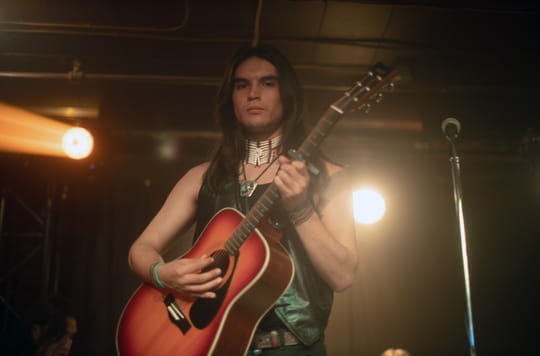Little Bird is a new shock series broadcast on Arte, from May 2024 and broadcast on Thursdays at 8:55 p.m.
Little Bird tells the story of Bezhig Little Bird, a Native American girl, taken from her family at the age of 5 with two of her brothers and sisters by child protection services on the Long Pine reservation, in Canada, before to be placed for adoption. Only their big brother, who went hunting with his father, escaped this kidnapping. Now in her twenties, Bezhig, renamed Esther Rosemlum by her adoptive family, lives in Montreal, is studying for the bar and is about to get married. The latent racism to which she is subjected, however, generates a deep unease in her, which pushes her to go in search of answers about her origins…
Award-winning at the Séries Mania 2023 festival, the mini-series Little Bird delves into the painful history of Canada, which in recent years has faced its colonial past and assimilationist practices that have shattered thousands of lives and are compared to cultural genocide. Between 1951 and 1980, thousands of indigenous children (First Nations, Métis, Inuit) were taken from their families and adopted by families, mostly non-indigenous, in an attempt to assimilate them into the dominant culture.
A true story in fiction
The story, told in six moving episodes in Little Bird, is therefore not an isolated phenomenon. It illustrates in the most crude way the result of the measures adopted by the Canadian government in the 1950s and in particular the modification of the Indian Act in 1951. This will let the provinces act without the consent of indigenous communities and open the path to what is called across the Atlantic the “sixties scoop”. This term, first used by researcher Patrick Johnston in a 1983 report, depicts the first waves of mass kidnappings in which Little Bird registers.
In British Columbia, for example, the number of indigenous children under state protection exploded, going from 29 in 1951 to 1,466 in 1964. Figures which continued to grow in the following years and in several states. In Manitoba, between 1971 and 1981, approximately 3,400 Aboriginal children were also adopted. Attempts to take stock are sensitive and laborious. More than 11,000 children were adopted between 1960 and 1990 across Canada according to the Ministry of Indigenous Affairs. But the figure of 20,000 children has been mentioned by several recent studies.
The horror of residential schools for natives
At the same time, until 1996, church-run residential schools for indigenous children were the scene of indescribable violence, including sexual abuse. Richard Kistabish, taken from his family at 6 years old, recently testified in several media, including Le Monde in France, about the horrors experienced and the suicide attempts of his comrades, betrayed and abused within the framework of an education system which aimed to “kill the Indian in the child’s heart.” Hundreds of children will suffer like him from physical, sexual and psychological abuse in these horrible boarding schools.
Recent excavations, such as those in Kamloops, British Columbia, where the remains of 215 children were discovered in a mass grave, have awakened old wounds and pushed Canada to confront its past. National apologies and gestures of recognition, such as the establishment of a public holiday to commemorate the victims, have since shown a desire to right the wrongs.
An impossible repair?
Responding to the call for reconciliation, several provinces have issued official apologies. On June 18, 2015, Manitoba apologized for these forced adoptions and on February 1, 2017, the federal government announced a willingness to settle a $1.3 billion class action suit, the first legal victory for the victims. Figures like Adam North Peigan have expressed the importance of the apology, calling it “meaningful” and a step toward healing.
But the road is still long and strewn with obstacles. The consequences are profound and lasting among Native Americans today, between loss of cultural identity, diminished self-esteem, and, for many, a life of solitude and confusion, as superbly illustrated by Little Bird. Mental health challenges are complicated by the fact that many only discovered their Aboriginal origins late in life, often by accident.
